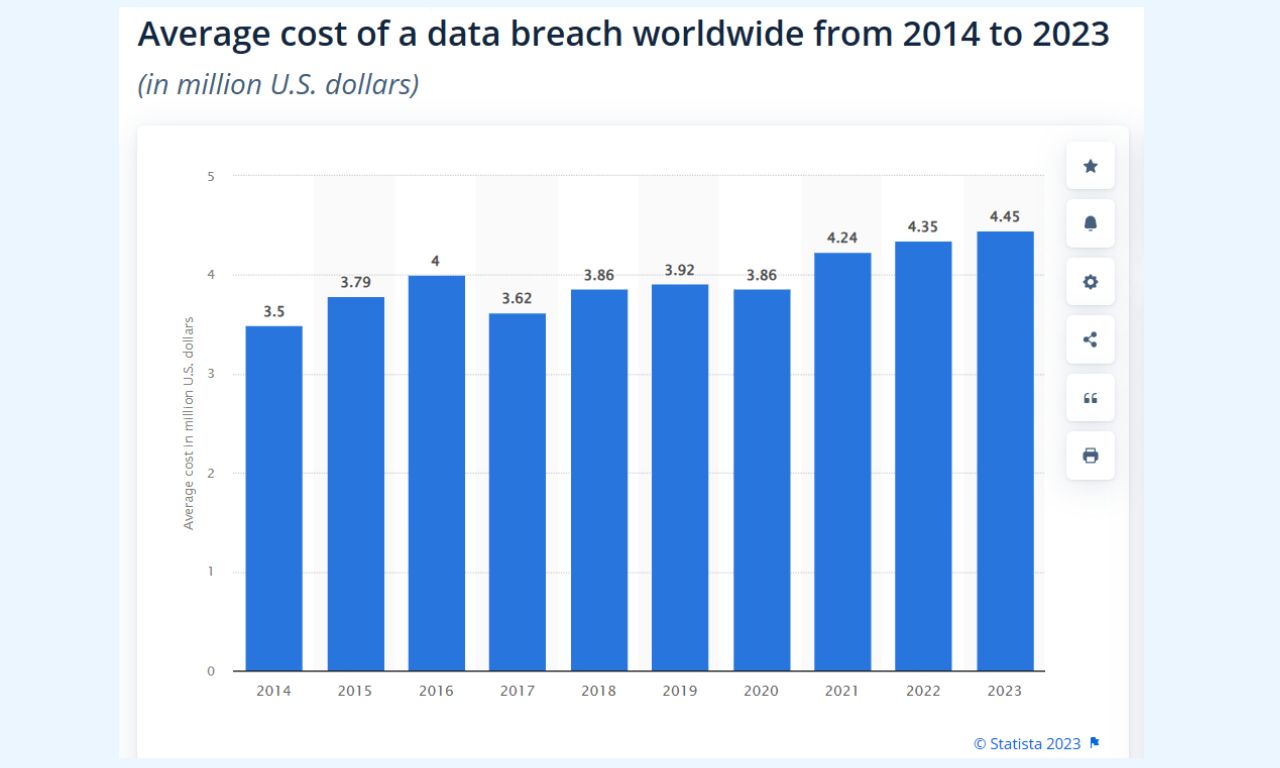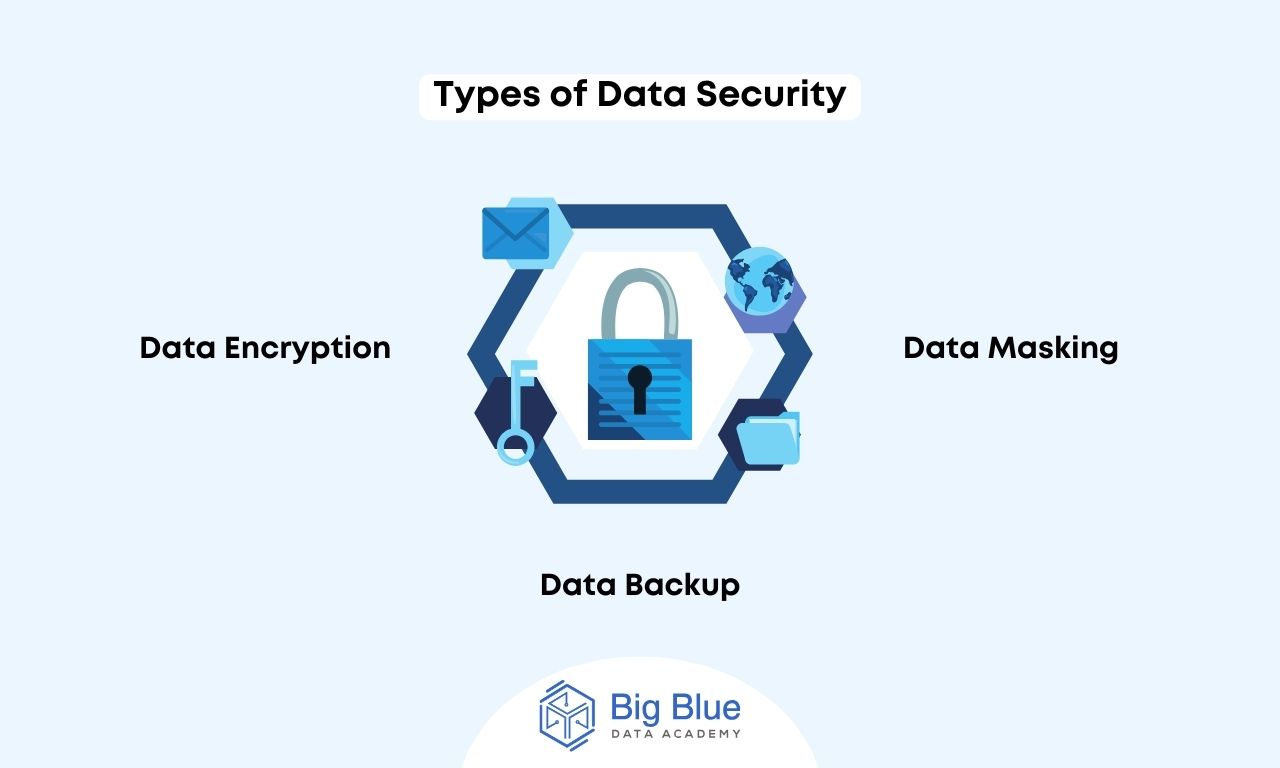Data Security: Importance, Types & Threats
Data is the most precious asset a business possesses, and therefore, necessary measures must be taken for its preservation and security.
Data breaches and malicious software attacks pose fundamental challenges for today's companies and their sustainability.
So, in today's guide, we will explore:
- What data security is
- Why it is important
- Types of data security
- Risks and practices for data security
Let's start with a basic definition.
What is Data Security?
Data security is defined as the set of practices to ensure the protection of data from unauthorized access, theft, or deletion throughout its lifecycle.
It is a crucial practice to ensure the integrity, reliability, and availability of data only to authorized users.
As a concept, it encompasses every aspect of data security, such as software application security, administrative controls, and access controls, by adopting specific policies and procedures.
It also involves the development and use of tools and technologies to enhance the visibility of data used within an organization or business.
Why is Data Security Important?
Data security is more crucial than ever in the era of digital transformation, where the volume of collected and stored data is enormous.
The need for data security and proper governance is of utmost importance.
Computing environments are now highly complex, creating grounds for data breaches and increasing threats in cyberspace.
According to Statista, the global average cost per data breach reached $4.45 million in 2023, with the highest costs found in the healthcare sector.

Over time, consumer awareness of the protection of their personal data has increased, leading to the implementation of various privacy regulations, including the General Data Protection Regulation (GDPR) in Europe.
Now that we've covered some basics of data security and its importance, let's continue by examining its main types.
What are the Main Types of Data Security?
As data comes in various forms, it needs to be treated differently based on its nature.
For an organization to achieve complete data security, it needs to know what data it has, record it, and classify it to facilitate easier management, storage, and security.

The main types of data security include:
Type #1: Data Encryption
Data encryption is the process of converting readable text with ordinary characters into an unreadable form using an encryption algorithm.
If encrypted data is stolen, it cannot be read or decrypted without the relevant encryption key, serving as a significant line of defense for data security.
Type #2: Data Masking
Data masking involves hiding data to make it unreadable.
It creates fake versions of a company's data by modifying confidential information and sensitive data collected about customers.
Type #3: Data Backup
Data backup involves creating copies of files and databases in a secondary location.
In case the primary data is stolen or accidentally destroyed, data backups serve to restore the lost data.
Risks and Practices for Data Security
The risks to data security are constantly increasing and can come from various fronts. One of the primary threats is the end user of the enterprise.
For example, an employee may unintentionally click on a phishing email or send confidential information via email to an unprotected cloud account.
Yet another challenge facing organizations today is the increase in corporate data footprints as well as greater data longevity.
To address these challenges, regular checks using artificial intelligence tools are essential for managing, detecting, and responding to risks.
Moreover, appropriate education for a company's members, along with proper guidance and the adoption of a data-driven culture, is crucial to ensuring compliance with regulations and maintaining data security.
Ramping Up
We have seen what data security is and why it is important, along with the types of data security and the best practices and challenges that have emerged.
Data security is of the utmost importance for any business that wants to strengthen its sustainability and proper functioning.
If you are intrigued and want to learn more about the world of data science, follow us for more educational articles!

.jpg)
.jpg)